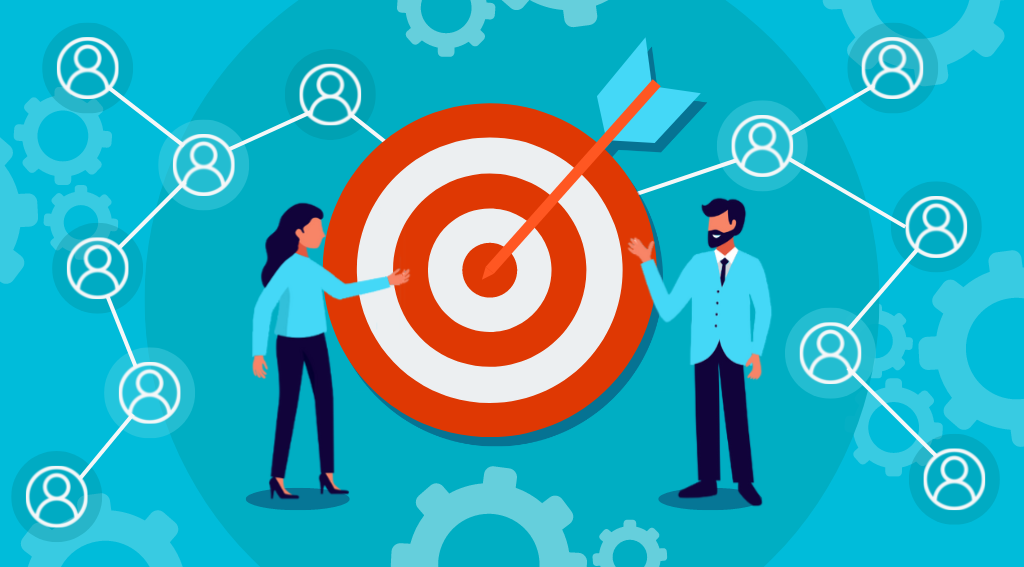Identifying and understanding how to reach your target audience is critical for your event’s success. After all, what would an event be without its attendees? There are many factors that drive the event planning process, and a certain amount of data must be collected and analyzed before you begin making major organizational decisions. Primarily, data on your past and potential attendees should be tracked and analyzed in order to provide you with the insights you need to create a goal driven event marketing strategy that attracts as many people as possible. Keep reading as we dive in to the importance of knowing your target audience, how to identify them, and the most effective ways of reaching them.
Why It’s Important To Know Your Event Target Audience
Knowing who you are targeting will give you insight into which tactics will be most effective and will ultimately guide your event planning process. This will help you determine things like the tone of voice, content, and design of your marketing plan. When creating your event, you will want to consider the audience you are wanting to draw in, as well as the audience that will naturally be drawn in due to your type of event. Since your attendees will determine the success of your event, it is vital to take the time and utilize the resources that will help you know you event target audience.
4 Tips To Determine Your Event’s Target Audience
There are many ways to determine your event’s target audience. When you take the time to lock down this important factor, you will want to ask yourself several questions about your attendees and how your event serves them. Once you’ve determined your target audience, you will then be ready to effectively reach them by curating content, messages, and other marketing efforts that match their values, interests, and motivations. Use these 4 methods to determine your target audience:
Understand the Event’s Purpose for Potential Attendees
Like anything being offered to consumers, an event essentially comes with a purpose. A seminar could have the purpose of teaching life skills to young adults, while a concert serves the purpose of providing entertainment to fans. Whatever your purpose is, it should be used to tell you more about your potential attendees. Typically, you can determine the values, age range, and interests of your potential attendees based on your event’s purpose.
Once you understand the purpose of your event, you can also use this to guide your overall marketing strategy. It is important to communicate the purpose of your event to event-goers so that they can decide if it is what they’re looking for, as well as find a clear motivation for attending your event.
Narrow Down Your Target Demographics
There are many different demographic factors to consider when thinking about your target audience. These include age, gender, income level, education level, and general location. Narrowing down your target demographics will help you fine-tune your marketing strategies. For example, if you narrow down your target audience by age group and decide that you are targeting young adults, you will include marketing strategies that appeal to this segment of society. This could include the use of social media, relevant humor, and a friendly tone of voice. If you decided to target an older age group, however, your marketing strategies would change drastically. This could include using tactics like traditional marketing, a professional tone of voice, and more straightforward content.
Define Your Audience Segments
An important part of defining your target audience is also taking the time to define audience segments. This takes into account that there may be multiple target audiences that can be placed into subgroups to better direct your marketing efforts. Defining your audience segments allows you to market in a way that speaks to each subgroup. For example, if one of your subgroups prefers social media over emails, you will communicate to them via social media posts and use emails for the other segments. This ensures that you cover all of your bases and speak to all of your target audience.
Consider Your Attendees’ Expectations
When planning your event, you should carefully consider your attendees’ expectations. This also helps tell you a lot about your target audience, as it shows you what is important for them to get out of your event. For example, if you are holding an animal charity event, it is likely that your audience will expect to see how their participation contributes to animal welfare. Their being interested in your event tells you that they have a heart for charity and a passion for animals. Using this information, you can plan your event to meet these expectations, as well as create marketing that highlights these aspects of the event.
4 Tips To Help You Reach Your Target Audience
You’ve defined your target audience, but how do you go about reaching them? Using the information you’ve gathered on your potential attendees, you can now curate a strategic marketing strategy or add on to your current marketing strategy in order to enhance it. Learning how to properly reach your target audience will ensure that your event receives valuable attention from potential attendees and those who might benefit from your event. You can use these 4 ways to begin reaching your target audience:
Create An Event Marketing Strategy
Your marketing strategy is key in planning and executing your event. Not only is it important in spreading the word, but it also allows you to set the expectations for your event and can be used in the future to fine-tune details and ensure a better turnout. Included in your marketing strategy should be all of the ways that you intend to reach your target audience. This strategy should include the planned content, points of engagement, timelines, and other key details that will contribute to the success of your event. When you create an extensive event marketing strategy, you will have all of your plans and information laid out in a way that makes it easy to refer back to and build off of when it comes to communicating with your target audience.
Appeal To Your Audience’s Motivation for Attending
Oftentimes, event-goers want to feel that they are benefiting from an event. Whether it’s a fundraiser or a concert in the park, your attendees should leave with the feeling that they got something valuable out of your event. In your marketing strategy, you should prioritize appealing to your audience’s motivation for attending. In other words, in your engagement with your audience, be sure to clarify what they will be getting out of their experience with your event. For example, if it’s a life skills seminar, be sure that they know that they will be leaving with the tools they need to become better leaders of their life. This will reinforce their motivation to attend your event and will lead to overall event success.
Personalize Your Communication With Potential Attendees
A great way to make your event stand out is to personalize your communication with potential attendees. This can be as simple as addressing them by name when you send out event notifications or as intricate as creating a personalized marketing message for them that motivates them to attend. When attendees feel a personal connection with the event, they are more inclined to be invested in it and will have an overall more positive experience.
Use the Appropriate Marketing Channels
When it comes to completing your event marketing checklist, it is of utmost importance to be sure that you are utilizing the right channels for your event. There are several channels to choose from, including a landing page, social media, traditional marketing, emails, influencer marketing, and many more. Utilizing the right channels for your event will ensure that it reaches the right target audience. For example, if your event is a hybrid (both virtual and in-person) concert for a band tailored toward young adults, you will find that you will benefit from utilizing social media more than traditional marketing channels. This way, you are meeting your audience where they are and making it easily accessible to those that wish to be involved.
Why You Should Use Event Technology To Plan Your Event
A range of factors go into planning an event, and defining and reaching your target audience is just one of the many moving parts. Event technology is being widely used by event planners to ease the stress of the event planning process, delegate tasks to other event workers, and automate tasks that might otherwise be monotonous. At Events.com, you will find all the technology you need to create a more efficient event planning process under one central platform. From our custom landing pages to our data and analytics, you will find that our event management software provides you with the information and extra time you need to create an unforgettable and successful event. Create your event using our event management software today and begin to see the undeniable benefits of centralizing and automating your event tasks.




